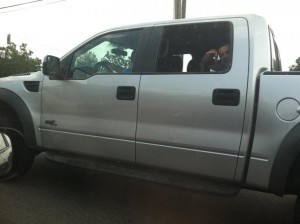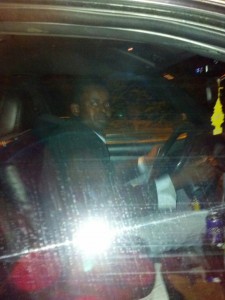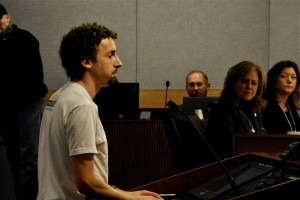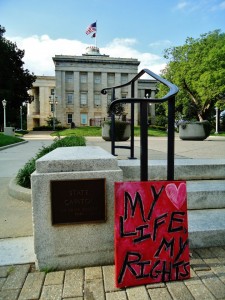So, I know you’re just dying to read about another leg of our gay, man-infested destiny road trip–you, the one trying to research a bail bond business whilst nursing a weekend hangover. But a more pressing matter deserves the dim limelight this lil blog affords.
Now, y’all know me. Or, at the very least, have read a post or two. So you know LGBT rights are important to me. For obvious reasons.
And you might also know that Andy and I have had our share of unpleasant encounters of the bigoted bubba kind.
But when I hear about friends who’ve experienced not just bigotry, but assault, I tend to lose my shit.
Especially when I haven’t had coffee.
So when I perused my Sunday Facebook feed and read about an incident involving two friends, not even the impending knowledge of coffee and French toast could keep me calm.
After being responsible adults and opting to have a cab service bring their evening to a close, my friends were called “faggots” by the driver. More disturbingly, after they’d exited, and as one of them snapped an iPhone photo of the bigoted driver, the driver attempted to hit the photographer with his cab.
Now. To write that that’s unacceptable, unprofessional, unbelievable, and dangerous would be ridiculous. Because it’s so much beyond that.
When a person’s hatred for complete strangers—clients, even—is so severe that it propels them to channel and exercise violence against those people, it’s time for legal action.
But then “crime” and, more specifically, “hate crime” definitions come into play, and bigots often skate through the massive loopholes specific to LGBT rights protections. And they feel their behavior is justified. And they feel it more so when their local government supports alienating and “othering” a segment of the population that’s a little different from them.
Because nothing brings bigots together more than the smell of disenfranchisement in the morning, afternoon, or night.
Still, knowing that their behavior hasn’t gone unnoticed does give some bigots pause. Because, as I’ve written before, when bigots believe their victims are two-dimensional, harmless, defenseless bodies and are suddenly faced with strong-willed, outspoken individuals well-equipped to defend themselves, they shut down. They don’t get it. They can’t quite comprehend that there’s some sort of recourse, even if it’s simply expletives exchanged between counter-positioned parties.
Words do resonate. Especially when received in concert by friends, family members, and allies of LGBT people. So as Andy and I fired off strongly-worded emails to the taxi service, as did many other friends, we felt that, if nothing else, the cab service knows that our eyes are on them.
That LGBTs have friends everywhere.
That we’re not alone.
That we’re not silent.
That we’re not victims.
That the national tides are changing with the ebbing of more conservative generations’ old guards, and the inflow of their younger, more enlightened replacements.
***
Later that day, Andy and I bumped into our friends at the grocery store, and heard a little bit more about their ordeal. And after they left and we got our groceries, we went next door to grab some coffee.
And there, in a long line, a woman met my gaze, held it, gave Andy and I the proverbial once-over, and grimaced.
I grimaced back.
Mostly because: (1) Bigots disgust me; and (2) Her faded jean short camel toe complemented both her oversized, stained tee shirt advertising her dog walking business and the pilled, circa 1993 scrunchie binding her badly highlighted, frizzed hair.
So after she and her muffin top collected a venti frappucino—with whip, of course—and flubbered along, I went out to our car, didn’t have to squeeze myself between the closely parked cars, and smiled to myself.
***
Love is like a battlefield.
But not quite in the way Jordin Sparks makes it out to be.
To love is to fight—to battle, even. Because when your life is up for public debate, when your rights can be stripped away by the majority, you’re always on alert. You’re always ready to wage war to defend those whom you love.
So you give it your best—do what you can to prove to yourself that your voice matters. That, no matter what, you don’t stand by and watch as things crumble, backsliding into the dregs of a problematic past.
That living your life is the best weapon against discrimination.
That just being out–being yourself–may help a kid who sees you, but whom you never meet, realize, Wow, I’m not the only one.
But fighting can leave you tired and weary. And resentful.
It’s then that you realize that it’s time to transfer the mantle to willing shoulders. Because, deep down, you know it’s time for you to leave.
Because there’s a time to fight.
And a time to live.




